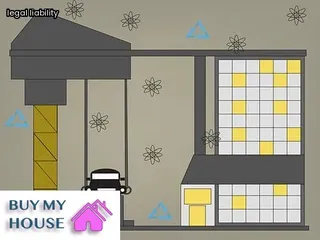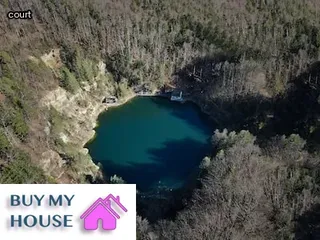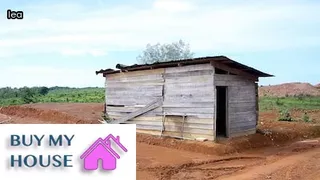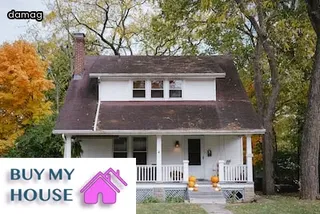As a landlord in Colorado, it is important to understand the difference between normal wear and tear and property damage when evaluating tenant damage. Normal wear and tear happens naturally over time due to the occupant’s everyday use of the rental unit, while property damage is caused by intentional or accidental actions of the tenant.
Common examples of normal wear and tear include faded paint, worn carpets, scratched hardwood floors, stained countertops and other cosmetic issues that do not affect the functionality of the unit. Property damage on the other hand would include broken windows, holes in walls or ceiling, damaged appliances, major plumbing problems and other issues that cause functional impairments to the rental unit.
It is important to be aware of what type of damages are considered normal wear and tear versus property damage so landlords can properly assess any security deposit disputes.

In Colorado, landlords have the right to deduct from a security deposit for tenant damage. This applies to any rented premises such as an apartment, house, or commercial space.
According to state law, landlords can keep all or part of a security deposit if there is evidence that an item or area was damaged by the tenant. If there is a dispute between landlord and tenant over the amount of damage and/or the value of repairs, it is important to understand Colorado’s laws regarding security deposits.
Landlords must be able to prove that the damage occurred while the tenant was living in their rental property and that they only charged a reasonable amount for damages and repairs. It is also important for landlords to document all property conditions before and after tenancy so they can make a strong case if needed.
Tenants are also encouraged to document all areas of the rental property prior to moving in so that any disputes about damages can be resolved quickly and fairly.
Landlords in Colorado must be aware of the potential for tenant damage and how to identify it in order to prevent disputes over deposits. It is important that landlords clearly state the expectations for tenant property damage in the lease agreement.
Additionally, inspections should be conducted before and after tenants move in and out to accurately assess any damages. If a landlord wishes to withhold some or all of a security deposit, they should document all evidence of tenant damage and provide this information to their tenants as soon as possible.
Communication between landlord and tenant is key when it comes to avoiding disputes over damage. Landlords should communicate with their tenants as soon as any issues arise, and provide them with an opportunity to fix them before withholding any security deposits.
Taking photos or videos of the property condition before and after tenancy can also help landlords protect themselves from expensive damage claims. Finally, landlords should understand their rights under Colorado law so that they know what documentation is necessary if there are disagreements about a security deposit refund.

Property managers must take steps to protect their investment and keep their rental properties in good condition. When it comes to tenant damage disputes in Colorado, there are a few important questions they should consider.
First, what legal rights do landlords have when it comes to tenant damage? In Colorado, landlords are able to keep all or part of the security deposit if the tenant causes property damage that is more than normal wear and tear. It’s also important to understand what constitutes normal wear and tear versus tenant damage.
To identify damages caused by tenants, property managers should document the condition of the rental before and after each tenancy so they can compare both sets of photos. Property managers should also know how much time they have after a tenant moves out to identify any damages that may be eligible for repair or replacement costs from the security deposit.
Additionally, property managers must be aware of Colorado laws regarding interest on security deposits and how those monies must be returned. Finally, knowing your rights and responsibilities as a landlord in regards to tenant damage is key to avoiding costly disputes with former tenants and ensuring your rental units remain in good condition for future occupants.
When tenants sue their Colorado landlords for the security deposit, it is important for the landlord to be prepared. It is essential that a landlord has evidence of any damage done by the tenant and can prove that they have followed the correct procedure with regards to security deposits.
Having a written agreement between both parties is key, as this will give clear expectations and rules regarding what types of damages are covered by the security deposit and how much money can be taken from it. Additionally, understanding Colorado state laws about security deposits is critical as different states have different regulations on how much a landlord can keep from a tenant’s security deposit.
Furthermore, ensuring that all communication with your tenant has been documented thoroughly is important in case you have to present this in court. Finally, hiring legal representation if needed can help provide an extra layer of protection while navigating any disputes with your tenants around their security deposit.

In Colorado, landlords must abide by certain rules and regulations when it comes to returning a tenant's security deposit. The most important rule is that the landlord must return the deposit within one month of the end of the tenancy.
Landlords can withhold all or a portion of the security deposit if there is evidence of tenant damage, but they must be sure to provide an itemized list of damages and their respective costs to the tenant. Furthermore, Colorado law requires that landlords cannot charge tenants for normal wear and tear, cleaning fees or pet damages unless those are specified in the lease agreement.
Additionally, landlords must provide receipts for any deductions taken from a security deposit. Finally, if there are no damages to account for, then the entire security deposit must be returned in full within one month after termination of tenancy.
When it comes to writing an effective move-out letter, landlords must be clear and articulate about the damages that a tenant has caused. It is important for landlords in Colorado to identify damage as soon as possible after a tenant moves out so that they can accurately determine the amount of security deposit that should be deducted from the tenant's security deposit.
Landlords should take pictures of the property before and after the tenant moves out in order to provide evidence of any damage that needs to be addressed. Additionally, landlords should include descriptions in their move-out letter of any areas where damage has occurred and list all costs associated with repairing or replacing damaged items.
Furthermore, it is recommended that landlords keep copies of all documents related to the move-out process including receipts for repairs or replacements, in case there are any disputes between landlord and tenant over security deposits or other damages. In summary, being clear and specific when writing a move-out letter is essential when it comes to identifying tenant damage in Colorado and addressing security deposit disputes.

Conducting a move-out inspection is an important step for landlords in Colorado when attempting to identify tenant damage and handle security deposit disputes. To begin, landlords should document the condition of the rental unit prior to the tenant's occupancy with photographs or video recordings.
This can serve as a reference point when assessing any damage caused by the tenant. Additionally, landlords should inspect all areas of the property during move-out, such as walls, doors, windows, floors, and appliances.
While conducting this process it is important to remain objective and take notes throughout. Landlords should also inform tenants that they are performing an inspection and allow them to be present if desired.
Lastly, landlords should acquire proof of any repairs required due to tenant damage in order to avoid any liability for negligence. By following these steps landlords in Colorado can effectively identify tenant damage and handle security deposit disputes appropriately.
As a landlord in Colorado, it's important to be prepared when it comes to security deposit disputes. One way to protect yourself is to create an itemized statement of deductions for any damage done by the tenant.
This document should include all the costs associated with repairs or replacements needed to restore the property. Include specifics such as the dates and amounts spent on each repair or replacement, as well as detailed descriptions of any damaged items and why they need replacing.
Make sure you have documentation like photographs and receipts to back up your claims if necessary. Additionally, make sure you keep a copy of this itemized statement for your records in case any disputes arise later down the line.

If the tenant's security deposit does not cover the damage and unpaid rent, landlords in Colorado must take steps to ensure they are not left out of pocket. They should start by sending a demand letter to the tenant for the overdue rent and damages.
This letter can be sent to their last known address and should include details of all necessary repairs, costs, any late fees and any other related costs. If this fails to resolve the situation, landlords may have to consider taking legal action such as filing a small claims lawsuit.
Before taking that step, it is important for landlords to research applicable laws in Colorado as they vary from state-to-state and can differ depending on the type of rental property. They should also contact their local housing authority or rental board office to ensure they have all the necessary paperwork required for filing a suit.
Landlords must remember that tenants who fail to pay do not automatically forfeit their rights; however, by understanding their rights and following relevant procedures, landlords can protect themselves from loss due to tenant damage and unpaid rent.
Knowing when and how to take a tenant to small claims court over a security deposit dispute can be tricky. As a landlord in Colorado, you have certain rights when it comes to protecting your property.
Knowing the rules that govern security deposits and how they apply in court is essential for success. Colorado laws stipulate that landlords must return security deposits within one month of the tenant's move-out date, barring any damages or costs for unpaid rent.
It is important to document any damage done by the tenant during their stay, as this will be the basis for withholding some or all of the deposit money. The landlord must also provide an itemized list of damages and deductions from the security deposit with evidence of costs incurred from repairs.
If a dispute arises, small claims court may be an option for resolving it; however, both parties should attempt to reach an agreement before resorting to legal action. A landlord needs to be aware of all applicable laws in order to protect themselves and their property, as well as have evidence that supports their case if taken to court over a security deposit dispute.

Having a landlord-tenant attorney on your side when it comes to security deposit disputes can be extremely beneficial. With their knowledge and experience, they can help you navigate the complexities of tenant damage identification in Colorado and provide advice on how to resolve any disputes amicably.
Moreover, they can explain all applicable laws related to the issue, advise you on how to minimize liability as a landlord, and help you draft any necessary notices or documents that may be required in the process. Additionally, an attorney will be able to spot any potential legal issues that could arise from the dispute and provide valuable insight into the best way to proceed with the situation.
A good lawyer will also have resources available that can help protect your interests when dealing with difficult tenants. Consulting with a landlord-tenant lawyer is often essential for landlords who are trying to make sure they follow their legal obligations while also protecting their rights.
When conducting a move-out inspection, it is important for landlords in Colorado to document any tenant damage that was caused to the rental property. To ensure accuracy and protect their legal rights, landlords should follow best practices when documenting the findings of the move-out inspection.
First and foremost, they should take detailed photographs of any damaged areas or items that are noted during the inspection. Photos should be taken before, during, and after any cleaning or repairs have been made.
The landlord should also create a written inventory of all damages that are identified during the inspection. This list should include a clear description of each item as well as an estimated cost for repair or replacement.
It is also helpful if landlords document any conversations with tenants that may have relevant information about the condition of the rental property at the time of move-out. Lastly, Colorado landlords must provide tenants with an itemized statement detailing any deductions from the security deposit within thirty days after a tenant vacates their rental unit.
By properly documenting a move-out inspection, Colorado landlords can better protect themselves from potential security deposit disputes.

Normal wear and tear in Colorado rental properties is generally defined as the deterioration of a property over time due to age, use, or weather conditions. Common examples of normal wear and tear in Golden rental properties include paint fading, minor scuffs on walls or floors, and small cracks in windows or doors.
Carpeting may also show signs of normal wear and tear with stains, fraying or minor tears that naturally occur over time. In addition, appliances such as refrigerators and ovens may lose efficiency due to age.
Landlords should be aware that certain types of damage are considered normal wear and tear and are not the fault of tenants. It is important for landlords to distinguish between tenant-caused damage and normal wear and tear when evaluating security deposit disputes.
In Colorado, examples of property damage that a landlord may find in rental homes can be divided into two main categories: physical damage and cleaning-related damage. Physical damage includes any intentional destruction such as holes in walls or broken windows, as well as any unintentional damage caused by tenant negligence such as water leaks from a clogged sink or unsanitary living conditions.
Cleaning-related damages are those related to cleanliness of the unit upon move-out, such as extreme dirtiness or pet odors that require more than basic cleaning. Landlords should also be aware of any other tenant-caused damages that may occur over the course of tenancy, such as smoking indoors or failing to adhere to the agreed-upon lease terms.
These types of damages can have an impact on security deposit disputes between landlords and tenants in Colorado, so it is important for landlords to identify potential issues early on before they become costly and time consuming.

Colorado landlords have the right to collect a security deposit from their tenants, but they also have an obligation to manage it properly. To get started, landlords should understand the Colorado laws and regulations governing security deposits, including maximum allowable amount, records that must be kept, and timelines for returning deposits.
The landlord must provide a written disclosure of all security deposit terms prior to collecting any money from the tenant. Landlords are also responsible for inspecting the property before and after tenancy to identify any damages that could be deducted from the security deposit.
Colorado law also requires landlords to provide itemized lists of deductions taken from the security deposit within 30 days of termination of tenancy. Landlords should know how best to document damages in order to ensure they can make valid deductions when required.
Additionally, understanding how disputes are handled is key in managing security deposits effectively in Colorado.
As a landlord in Colorado, it is important to be aware of your rights when dealing with tenant damage to property. Under Colorado law, landlords have the right to collect a security deposit from tenants for any damage that may occur during their tenancy.
Security deposits can help landlords recover financial losses and protect their property from future damage. It is also important for landlords to assess the condition of the property before and after tenancy, and document any existing or new tenant damage to the premises.
Landlords should also review their lease agreement and understand what conditions must be met for them to legally deduct money from a security deposit. Additionally, landlords should take steps to prevent tenant damage by educating tenants on their responsibility to maintain the premises in reasonable condition.
To ensure they are not held liable for any tenant-caused damages, landlords should promptly address any repairs or maintenance needed due to tenant neglect or abuse of the property. By familiarizing themselves with their legal rights as a landlord in Colorado and taking proactive measures to avoid tenant damage, landlords can protect themselves from potential disputes over security deposits.

It is important for landlords in Colorado to be aware of potential liabilities for property damage caused by a tenant. Before renting a property, it is recommended that you conduct a thorough inspection and document any existing damage, as this will serve as evidence in the event of a dispute.
It is also beneficial to inform your tenant of the condition of the property prior to move-in and have them sign an agreement that outlines their responsibility for keeping the property in good condition. As landlord, it is your responsibility to check regularly for signs of neglect or damage.
Keeping records such as photos and repair receipts can be valuable when attempting to recover damages from a tenant’s security deposit. Ultimately, being well informed on Colorado’s security deposit laws and regulations is essential in order to protect yourself from liability when identifying tenant damage.
When it comes to tenant damage, landlords in Colorado are often left facing substantial financial losses. Property damage can be an expensive problem that affects the profitability of a business when repairs and replacement costs are taken into account.
Unfortunately, disputes over security deposits are not uncommon and they can put additional strain on an already tight budget or finances. It is important for landlords to understand the potential impact of these financial losses on their businesses so that they can make informed decisions about how to handle situations involving tenant damage.
Knowing when to seek professional help from legal or insurance experts is essential for navigating these disputes, as well as minimizing the costs associated with them. Ultimately, investing in appropriate measures early on is key for preventing costly damages from occurring in the first place and ensuring your business’s long-term success.
In Colorado, landlords must provide proof of tenant damage to the rental property in order to withhold a security deposit. Landlords are required to document any damage caused by their tenants in Colorado, including repairs needed to restore the rental unit to its original condition at the time of move-in.
This may include photographs, estimates from contractors and other documentation that shows the extent of damage done. When disputes arise between landlords and tenants regarding security deposits, landlords must be able to provide evidence that they have taken all reasonable steps to mitigate damages and protect their investment.
They must also be able to demonstrate that they have properly documented all costs associated with tenant-caused damage. By being prepared with proof of damages due to tenant negligence, Colorado landlords can ensure a fair resolution when it comes time for security deposit disputes.

In Colorado, there is a distinction between normal wear and tear on a rental property and damage caused by tenants.
Normal wear and tear includes fading paint, worn carpets, aging appliances, loosened door handles and other minor issues that occur over time.
Landlords should not deduct the cost of repairs for these items from a tenant's security deposit; however, landlords may charge for damages such as missing fixtures or broken windows if it can be proven that the tenant was responsible.
It is important for landlords to identify what constitutes normal wear and tear in Colorado so they can properly address any security deposit disputes with tenants.
As a landlord in Colorado, you must abide by certain regulations when it comes to security deposit disputes and identifying tenant damage. There are certain restrictions that you cannot exceed when dealing with your tenants.
You cannot discriminate against any tenant based on their race, color, national origin, sex, familial status or disability. You also cannot charge more than one month’s rent as a security deposit nor can you charge an additional pet deposit if the tenant has a service animal.
Additionally, there are certain rules that landlords need to follow when it comes to returning the security deposit after a tenant moves out. Landlords must return the full amount of the security deposit within 60 days for unfurnished dwellings and 75 days for furnished dwellings unless deductions were made due to damages caused by the tenant or unpaid bills from utilities or rent.
The landlord must also provide an itemized list of all deductions taken so that the tenant is aware of why money is being withheld from their total security deposit refund.
Are nail holes considered normal wear and tear in Colorado? The answer to this question can have a major impact on security deposit disputes with tenants. Landlords in the state of Colorado should familiarize themselves with the regulations regarding tenant damage, as some tenant damages may not be classified as normal wear and tear.
In the event of a dispute, landlords must be able to identify tenant damage versus normal wear and tear in order to protect their security deposits. Nail holes are common among renters and are often considered normal wear and tear.
However, excessive amounts or wide nail holes may constitute damage that is not covered by the security deposit. It is important for landlords to visually inspect all walls prior to move-in and move-out in order to accurately document any damage caused by tenants that is not covered by normal wear and tear.
Landlords should also familiarize themselves with Colorado's statutes when it comes to tenant damage, security deposits, and landlord-tenant law in order to understand their rights and responsibilities when it comes to identifying tenant damage in Colorado.